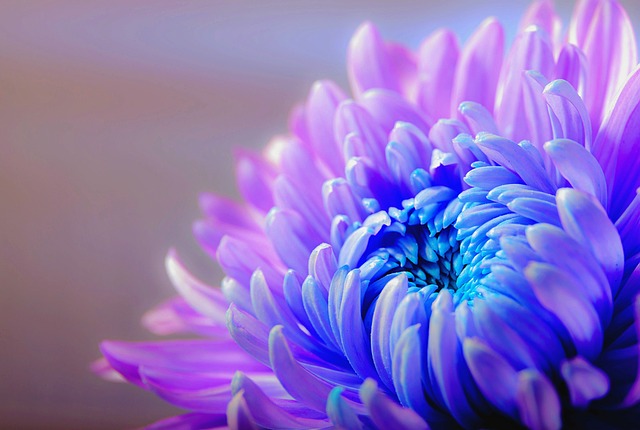
Starting and maintaining an organic garden requires a lot of patience, and an affinity for growing plants. This pastime should yield amazing and healthy foods, free of pesticides and other chemicals found in store bought produce. You might think this sounds complicated or expensive. Throughout the article below, you will read some expert advice on organic gardening that can assist you in becoming a skilled gardener.
The quick and drastic change in the weather conditions can shock your plants and cause them to die. It’s important that you gradually change temperate conditions over time, so that your plants can adjust. On the first day, place them in the sun outside for only an hour or so. Throughout the week, gradually increase the time they are spent outside. After a few more days, your plants will be more resistant and ready to stay outside all the time.
Find some plants that will give you a higher yield. A hybrid designed for your weather, and resistant to local diseases, will give a better yield than non-hybrids.
Think about starting plants in pots, and then placing the seedlings in the garden later. This really increases the survival rate of young plants. The period between plantings will also be shorter. The seedlings are ready to go, once you remove the mature plants.
Soak your seeds in a dark spot during the overnight hours. Place your seeds in a container filled with water. The idea here is for your seeds to become fully hydrated by the time they hit the dirt. This increases the chances of survival for the seeds.
Take extra care of any fragile shrubs that are known to drop their leaves in the autumn. If you’ve got tender shrubs which are potted, you need to protect them from cold weather. Pull the canes together at the top and securely tie them. Next, using a sheet or perhaps even a blanket, cover the structure. People sometimes use plastic to wrap their plants, but plastic can cause the plants to rot because it impedes air circulation.
Do you want fresh mint leaves without having to worry about them growing too quickly? You can control the growth of the mint leaves by growing them in a large container rather than in your garden. You can even plant the container in the ground. That way, the roots won’t be able to escape the container, and the plant won’t overrun your garden.
All of your vegetable plants should have approximately two inches, just outside the stem, of organic mulch placed around them. The soil around plants can stay damper through the use of mulch. It will also prevent weeds from growing. This will save you time, money, and effort in your lovely garden.
Horticulture can be very relaxing. There are many ways to find personal relaxation and peace. Working in the garden is among the simplest. Gardening does not require a lot of dollars to start, and yields tremendous benefits. Great satisfaction will come from raising produce and flowers in your own environment.
Avoid sun damage by dressing appropriately whenever you will be gardening in the sun. Clothing should keep your skin covered, and don’t forget to wear a hat, sunglasses and sunscreen. When using the right protection in the sun, you will lower your chance of getting a sunburn and decrease your risk of getting skin cancer.
Your children can help you with your garden. Growing a garden is a great way to teach your children about nature while allowing you to have time to bond with them.
As your seeds sprout, they require less warmth than before. Remove plants from the heated environment once they begin growing. Remove plastic films on containers to prevent warmth and humidity from penetrating them. Watching your plants as they grow will give you the insight on when to employ these tactics.
Put coffee grounds in your soil. Coffee has a lot of essential nutrients that plants need. Your plants will really bloom if they get the nitrogen they need from coffee grounds or compost or diluted urea.
Use untreated stone, brick or wood to build raised beds. Any wood you use needs to be untreated and resistant to rot. Examples of good woods include cedar, cypress, and locust. In order to avoid toxic substances from getting into the ground and perhaps into your vegetables, avoid using treated wood to enclose or demarcate different sections of your vegetable garden. In the event your vegetable garden already has treated wood as part of its enclosure, consider replacing it, or painting it, or wrapping the treated wood in some protective covering. Keep in mind that if any of the untreated wood is below the ground, you should dig it up to make sure that you completely protect your vegetable garden from the chemicals in the treated wood.
If you’re planning on selling crops to people and labeling them as organic, you will need to receive an organic gardening certification. Obtaining this certification will give you further credibility as an organic gardener, boosting sales and proving to your customers that you provide only the best.
It can be hard to grow an organic garden without chemicals, but the end result is worth the effort. Chemical giants claim miracles, but those miracle crops come at a price to whoever eats the produce.
Any type of gardening can be a fun hobby because it brings you closer to the earth, but creating an organic garden is really good at this. This kind of horticulture keeps you more involved in planting, cultivating and harvesting, giving you a clearer picture of the entire life cycle of each plant.
Organic horticulture is a hobby incorporating nature, hard work and patience. This hobby makes use of the land around us to grow something that tastes really good. But, if you are ready to dedicate yourself and stick to the advice in this piece, you are sure to be a successful organic gardener.